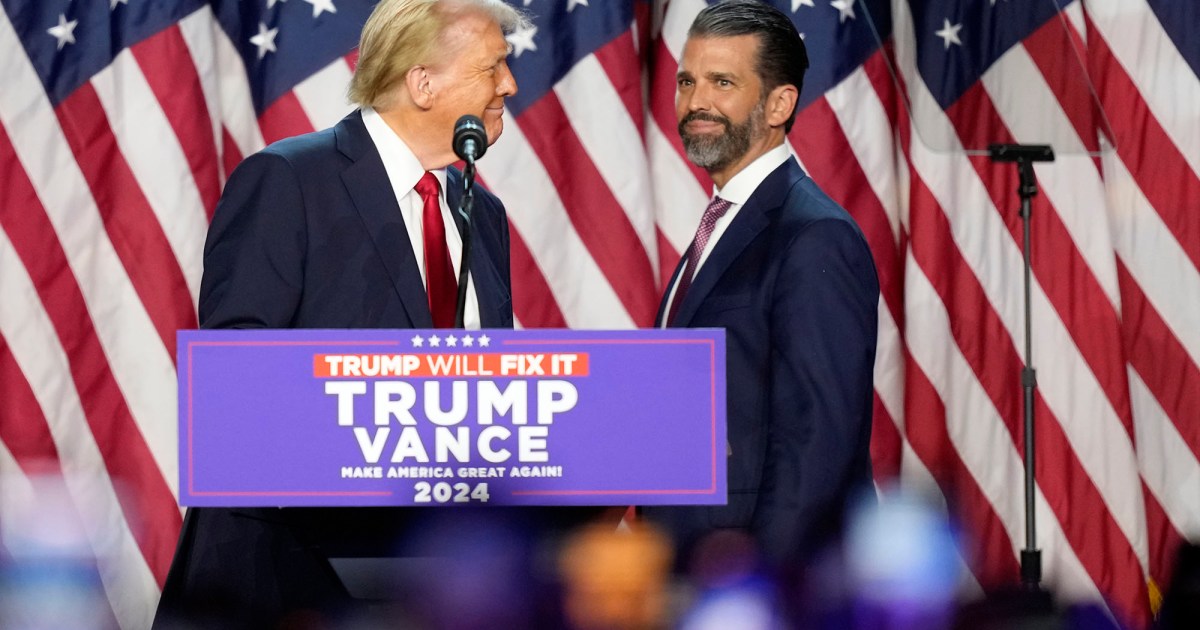
Mike Johnson is the new speaker of the House. The conservative Louisiana lawmaker—a man described by the New York Times as the “most important architect” of congressional Republicans’ attempt to throw out Joe Biden’s 2020 victory—is now second-in-line to the presidency. It’s a win for MAGA extremists. A win for Donald Trump. A win for anyone who thinks that elections should be decided by GOP politicians instead of by voters.
And House Democrats helped make it possible.
Yes, I am aware that this has somehow become a controversial take—as if acknowledging Democratic culpability somehow excuses GOP extremism and the complicity of so-called “moderate” Republicans. But that culpability is real.
Back on October 3, every single Democrat present—all 208 of them—teamed up with eight ultra-conservative Republicans to oust Speaker Kevin McCarthy. The GOP rebels, led by Rep. Matt Gaetz (R-Fla.)—who has always loathed McCarthy—were angry that, after weeks of chaos, McCarthy had averted a government shutdown by working with Democrats to pass a temporary spending bill.
Gaetz and his allies couldn’t have removed the GOP speaker on their own. They needed a lot of help from across the aisle. And the Dems delivered. They offered a lot of reasons—many of them pretty compelling—for refusing to bail out McCarthy: McCarthy had voted to overturn the 2020 election. McCarthy had tried to thwart Congress’ January 6 investigation. McCarthy had launched a partisan impeachment inquiry against Joe Biden. McCarthy couldn’t be trusted. McCarthy refused to make any concessions to Democrats. McCarthy was largely subservient to the Trumpist right. And so on.
Hours before McCarthy’s ouster, former Speaker Nancy Pelosi—who wasn’t in DC for the vote—made her views clear: McCarthy’s fate, she insisted, wasn’t the Democrats’ problem. “The Speaker of the House is chosen by the Majority Party,” she tweeted. “In this Congress, it is the responsibility of House Republicans to choose a nominee & elect the Speaker on the Floor. At this time there is no justification for a departure from this tradition.”
That may well be. But refusing to depart “from this tradition” wasn’t some grand law of nature or principle of democracy that Democrats were compelled to honor. It was a choice. They opted to make what they saw as a principled stand against McCarthy—knowing full well that the end result might be a speaker who is worse. Dems had their chance to stop McCarthy’s far-right detractors from seizing power, but instead, they chose to help Gaetz.
In a widely circulated thread after the October 3 vote, Aaron Fritschner, a Democratic House staffer, laid out the logic behind removing McCarthy. It’s a fascinating insider account and well worth the read. Fritschner makes a strong case. “We did not trust Kevin McCarthy and he gave us no reason to,” Fritschner argues. “He could have done so (and I suspect saved his gavel) through fairly simple actions. He chose not to do that.”
Even after all that happened – January 6th, the debt limit crisis, his vengeance against our members, breaking his word to the President, impeachment, empowering the right wing – there were Democrats who were imho willing to help McCarthy if he had given them a reason. He didn’t.
— Aaron Fritschner (@Fritschner) October 4, 2023
“Will the next Speaker be worse?” Fritschner asked. “Nobody can possibly know who it’ll be or what the dynamic will be.”
That wasn’t necessarily wrong. The last three weeks have seen the GOP caucus lurching back and forth between pragmatic conservatives and MAGA diehards like Jim Jordan. Reps. Patrick McHenry (R-N.C.) and Tom Emmer (R-Minn.)—both of whom voted to certify Biden’s victory—each had a shot at becoming speaker. There was even talk of Republicans cutting deals with Democrats.
But that isn’t where the dice landed. In the end, mainstream Republicans—even the ones who had repeatedly thwarted Jordan’s speakership bid—fell in line behind Johnson. The Louisianan may be less personally obnoxious than his better-known Ohio ally, but he’s still pretty extreme. Like Jordan, Johnson played an indispensable role in Trump’s coup attempt, pressuring his colleagues to sign on to an effort to get the Supreme Court to overturn the election. As the Times reported:
Mr. Johnson drafted a supporting brief that focused on the constitutional argument. As chairman of the Republican Study Committee, he pushed its members to sign the brief, and he also wrote an email to all Republican lawmakers warning in bold red letters that Mr. Trump would be tracking their response. “He said he will be anxiously awaiting the final list to review,” he wrote.
The lawyer for the House Republican leadership told Mr. Johnson that his arguments were unconstitutional, according to three people involved in the conversations, and Ms. Cheney, also a lawyer, called the brief “embarrassing.” Mr. McCarthy, the Republican leader, told members that he refused to sign, the three people said.
Nonetheless, Mr. Johnson pushed ahead and filed the brief on Dec. 10 with 105 lawmakers as co-signers, and within a day he had added 20 more—including Mr. McCarthy.
Even after the court flatly rejected this lawsuit, Johnson pressed on, rallying Republicans to vote on the House floor to throw out the electoral votes of swing states Biden won. According to the Times, three-quarters of the lawmakers who voted in favor of handing the election to Trump justified their actions by citing Johnson’s legal arguments.
McCarthy, of course, was one of those lawmakers. There is no question that McCarthy went along with Trump’s coup attempt. It’s impossible to know whether, in practice, Johnson will really be much different. But Gaetz certainly sees it as a victory. “If you don’t think that moving from Kevin McCarthy to MAGA Mike Johnson shows the ascendance of this movement and where the power in the Republican Party truly lies, then you’re not paying attention,” he told Steve Bannon on Wednesday.
That’s a change that Democrats helped make possible. And they bear at least some of the responsibility for whatever happens next.















